Asian Americans who sparked national movement after Vincent Chin's death continue fighting
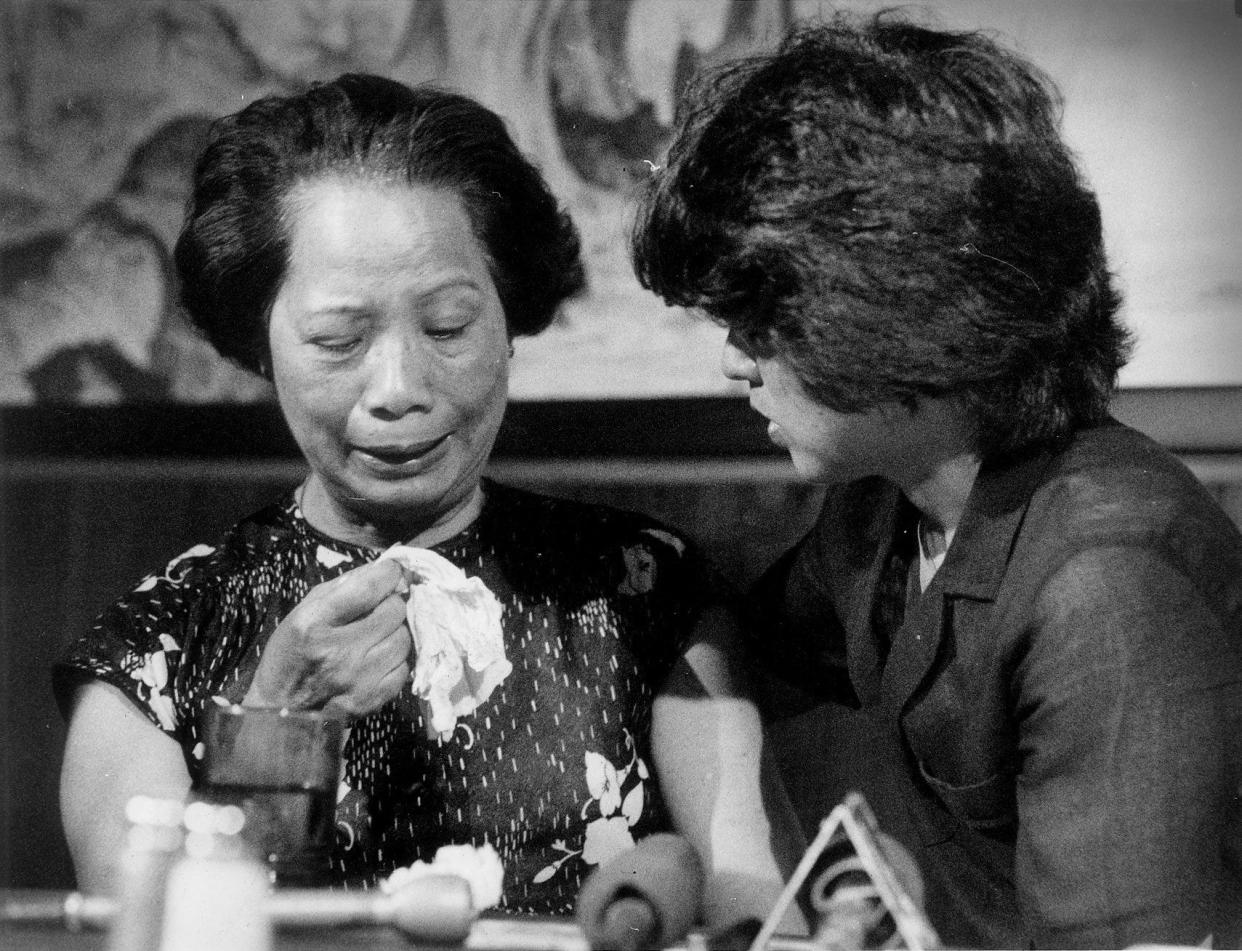
When Helen Zia read in the newspaper almost 40 years ago that the men who killed Vincent Chin in Highland Park were sentenced only to probation, she was stunned.
"I was just livid," Zia, 70, an author and Asian American activist, recalled this week. "I couldn't believe my eyes. Is this how this story ends, that his killers get off with probation? And what did that mean for people who might be targeted? Like, go ahead, kill an Asian American and you won't go to jail."
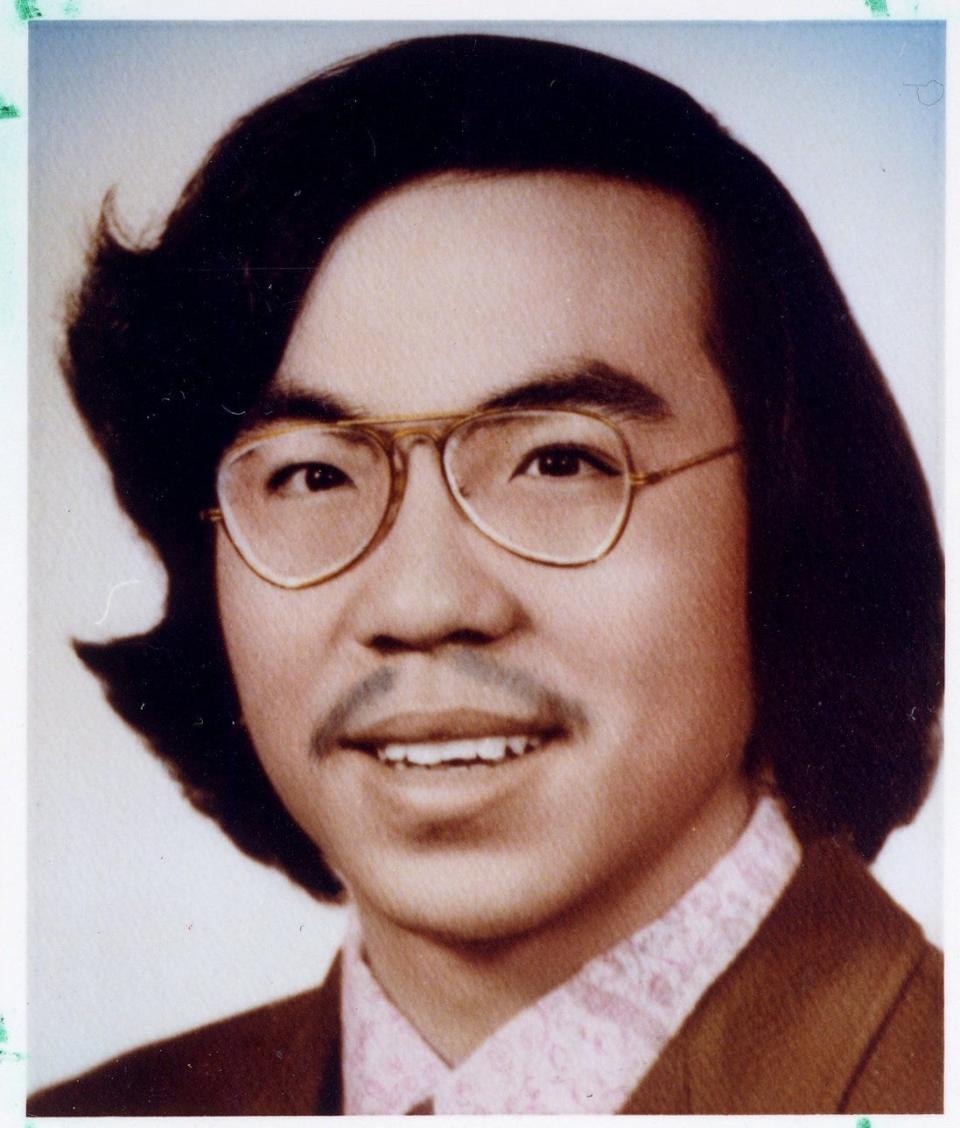
The outrage mobilized Zia and other Asian Americans in metro Detroit who went on to make the Chin case a national cause, igniting a movement that continues today amid growing concern about anti-Asian racism. As bias crimes against Asian Americans rise, the story of Chin — a Chinese American man beaten to death 40 years ago this Sunday by white autoworkers, one of whom complained of Asians taking away their jobs — still resonates. Back then, Japanese people were perceived as the enemy during an economic downturn, leading to attacks in Michigan and other places against not just Japanese Americans, but Asian Americans in general.
"It’s because of you little (expletive) that we’re out of work,” attacker Ronald Ebens yelled at Chin, 27, a witness said.
"It was a time of economic and social crisis for the city, and people of Asian descent were blamed for it and were scapegoated," Zia said.
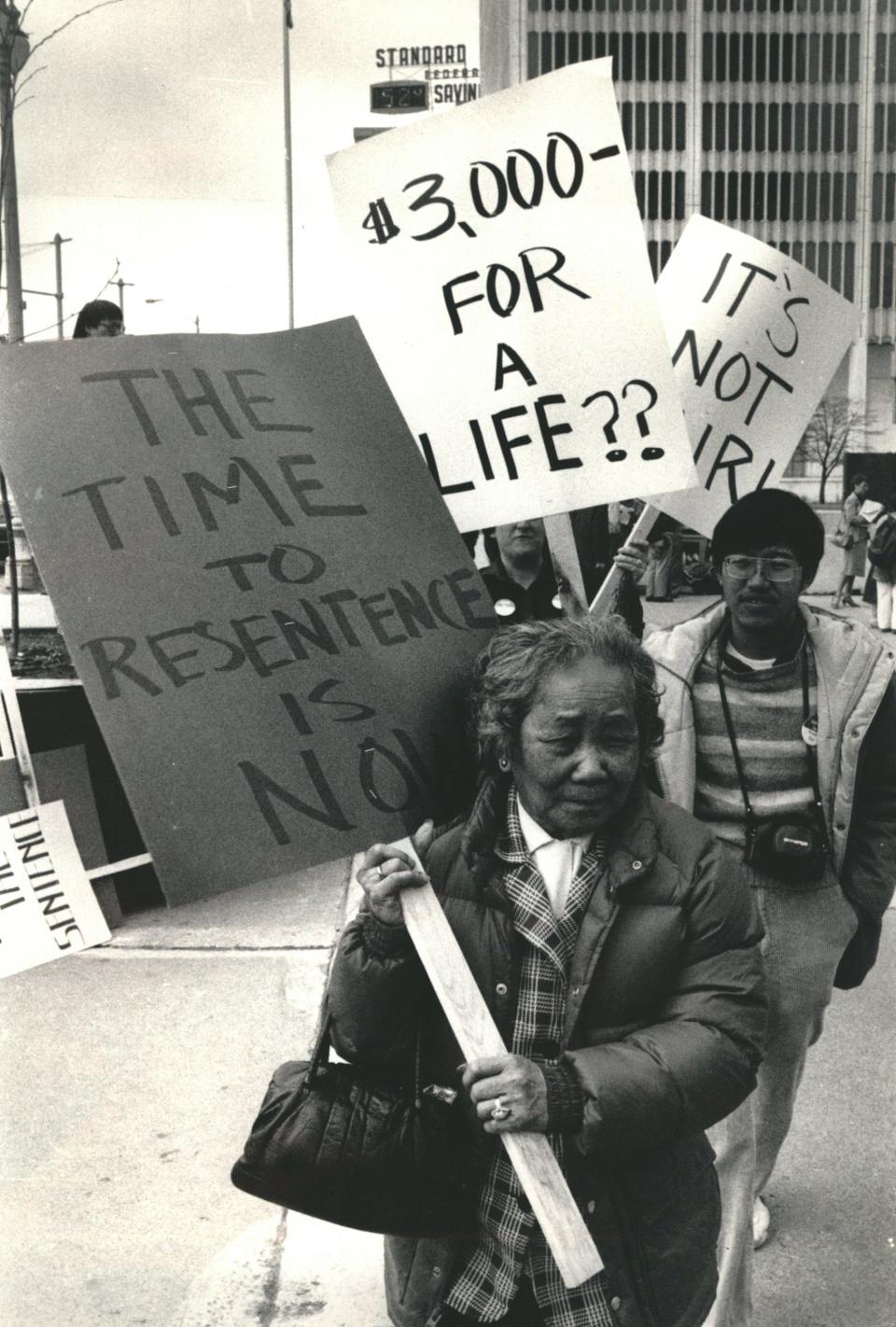
And now China has replaced Japan as a perceived enemy amid a pandemic and similar economic problems such as inflation, leading at times to ostracism, government targeting such as FBI investigations that advocates say target the innocent, and a spike in hate crimes, advocates said.
Starting Thursday, there will be four days of events remembering Chin and the struggles of Asian Americans, ending Sunday with an interfaith ceremony at the burial site of Chin at Forest Lawn Memorial Park cemetery in Detroit. All the events are free and open to the public; organizers are asking attendees to register at vincentchin.org. There are plans for other events this month in Detroit, including a memorial service at Central United Methodist Church in Detroit, a historic Protestant church where Chinese and Japanese Americans once flocked when moving to Detroit going back to the 1930s.
"If you look Asian, you're a target," said Sylvan Lake attorney James Shimoura, a grandson of Japanese immigrants who was one of the key activists 40 years ago working on the Chin case. "That was true in 1982. It's true today in 2022."
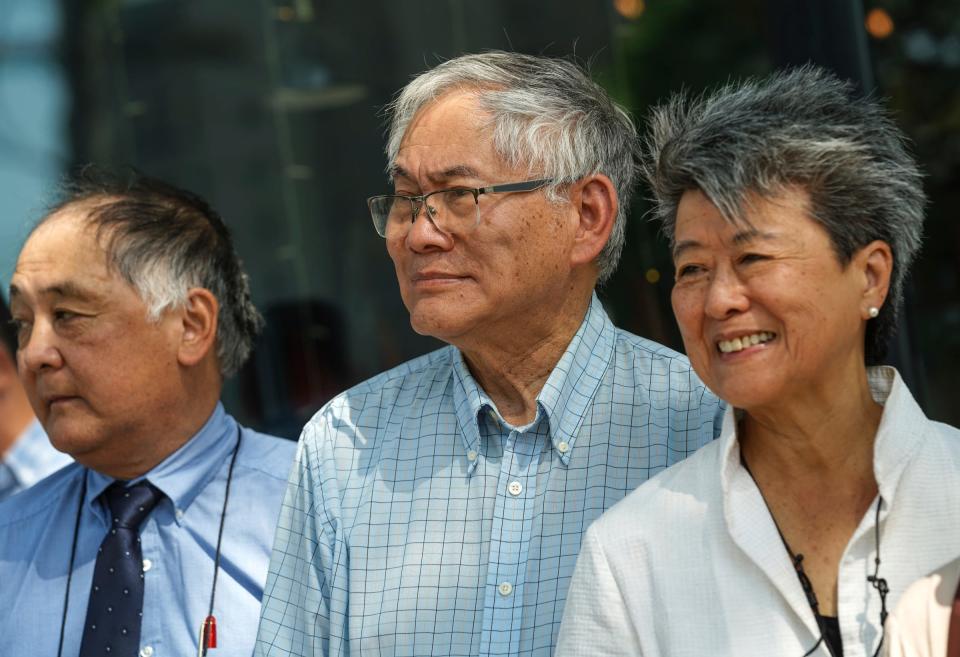
Their experiences echo what other communities in metro Detroit have faced over the past 20 years, from Arab Americans and Muslims being profiled to Latino immigrants facing deportation. As the Asian American population grows in southeast Michigan, communities are once again mobilizing and trying to gain more political influence to help preserve their rights.
Building coalitions for justice
One of the lessons learned four decades ago was coalition building, both within diverse Asian American communities sometimes divided by nationality and with other groups such as African Americans. Black civil rights and labor leaders such as the late Rev. Horace Sheffield Jr., whose granddaughter is Detroit City Council President Mary Sheffield, gave "incredible support" to Asian Americans after Chin was killed, helping them to publicize the case and bring attention to government officials, Zia said. The Rev. Jesse Jackson and leaders with the NAACP and National Urban League also spoke out.
"Over these next four days, we really are trying to lift that up, the multiracial, multicultural, interfaith movement that was created in Detroit," Zia said. "We've done it before. ... The drumbeat today is, we're so divided. ... We can show that we have come together and we accomplished a lot together."

As an idealistic child of the 1960s, Zia had moved from Boston to Detroit in the 1970s to be part of the labor movement in a place known nationally known for its strong unions. She became an autoworker, working as a large press operator at a Chrysler plant. She later got laid off from Chrysler as the oil crisis of the 1970s led to rising unemployment in Michigan. A child of immigrants from China, Zia and others felt the rising anti-Asian prejudice.
Back "then, every day on the TV, radio, news, the halls of Congress, the C suites of auto companies was: 'We're at war, Japan is the enemy,'" Zia said of the climate in the early 1980s.
In Detroit, cars made in Japan were sometimes shot at on the freeways, Zia recalled. Just a few months before Chin's death, in March 1982, former U.S. Rep. John Dingell, D-Dearborn, referred to Japanese people in a racially insulting manner, reported the New York Times. Dingell later apologized. And the month before Chin's death, a Chrysler board member said on WJR-AM (760) the U.S. should drop another atomic bomb on Hiroshima to deal with Japanese competition, the Free Press reported.
"There are really terrible parallels to what's going on today," Zia said.
A report released in March by Asian American advocacy group Stop AAPI Hate said there were 10,905 hate incidents against Asian Americans and Pacific Islanders (AAPI) from March 19, 2020, through the end of last year. About 120 of those were in Michigan. The group started collecting data near the start of the pandemic when Asian Americans started to face bias incidents as some sought to link the virus to China.
"Almost half (48.7%) of all hate incidents took place in public spaces — in public streets (31.2%), public transit (8.4%), and public parks (8.0%)," the report said.
More than 16% of the hate incidents involved physical assaults, and Chinese Americans were the biggest victims.
The killings last year of eight people in Atlanta, six of them Asian women, shook up many, leading to protests, some of them in metro Detroit.
After Chin was killed, attorney Roland Hwang, today 73, helped form American Citizens for Justice, of which he is currently president. At the time, Hwang was president of the Association of Chinese Americans and worked with Zia, Shimoura and others to bring attention to Chin's case.
Killed with baseball bat
The incident started on June 19, 1982, at a club in Highland Park where Chin and friends were celebrating his upcoming marriage, according to court testimony. Autoworkers Ebens, 43, and his stepson Michael Nitz, 22, got into an argument. Witnesses said a racial slur against Japanese people was hurled at Chin and comments about Japanese people stealing their jobs; the attackers denied making racial remarks and accused Chin of starting the fight.
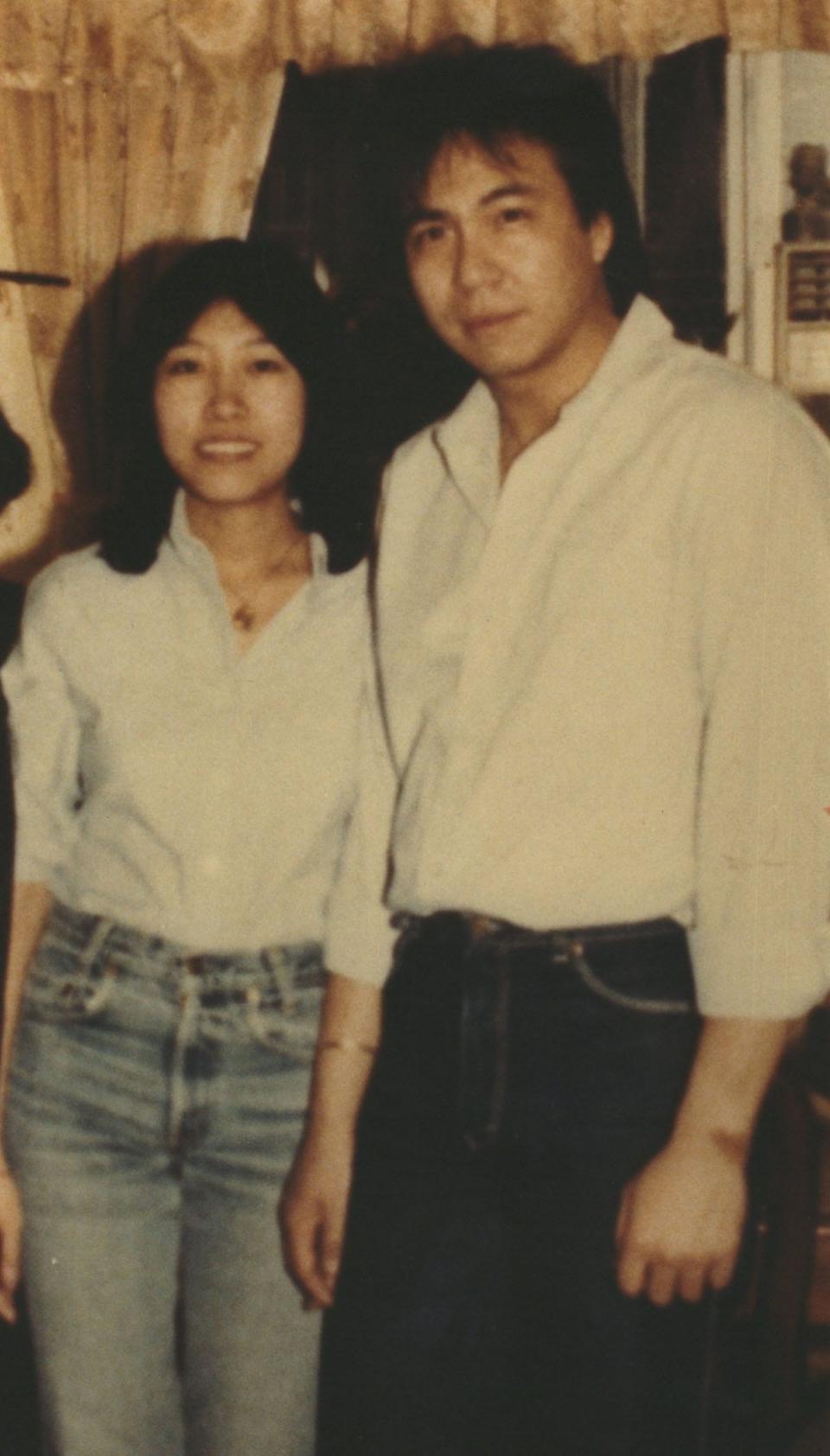
A scuffle broke out and Chin left the club. Later, Ebens and Nitz searched for Chin, finding him outside a McDonald's. As Nitz held him, Ebens pounded him several times with a baseball bat. His last words according to a witness were: "It's not fair."
Chin died a few days later on June 23.
Zia and others been following the case in the local newspapers, but it was the probation sentence the following year that ignited the movement.
They had a difficult time getting heard by politicians, prosecutors and progressive activists.
"We were so invisible," Zia said. "Asian Americans were never covered" by the news media.
Leaders with the Michigan chapters of the ACLU and National Lawyers Guild were also indifferent or hostile to their concerns, Zia said. The executive director of the ACLU Detroit office at the time dismissed their pleas for help, Zia said. Asian Americans wanted to make it a civil rights case, but were told by the ACLU their group didn't qualify.
After the case drew national attention due to the work of local activists and Zia, who was a freelance journalist at the time, the Department of Justice intervened, bringing federal civil rights charges.
Ebens was found guilty in the federal trial, but his conviction was later overturned by an appeals court. A civil lawsuit was then filed and a settlement was reached, with Ebens ordered to pay $1.5 million. Today, that amount is estimated to be up to $10 million, which he still owes, Zia said. Ebens lives in Nevada and couldn't be reached for comment.
Support from Black leaders
While the ACLU didn't intervene, the Black community was helpful, with Sheffield putting them in touch with the prosecutor's office and others.
"We had virtually no friends in high places at the time," Shimoura said. "We were a very new group to politics and civic involvement. For example, we couldn't get a meeting with the prosecutor. We couldn't get a meeting with the judge to talk about it. We were lucky enough to get a relationship with ... Horace Sheffield Jr. who was the founder of a group called Detroit Association of Black organizations, called DABO for short."
Asian Americans were disappointed in what they say was an indifferent attitude among prosecutors. And the judge who sentenced the men, Charles Kaufman, praised them during the sentencing, saying: "These weren't the kind of men you send to jail."
White suspects being perceived automatically as people of good character in contrast to minority defendants is an issue that still exists today in the criminal justice system, advocates said.
Struggle for political influence
Advocates say one of the lessons learned from the Chin case is that Asian Americans have to get more involved with politics and government.
In Michigan, there are now about 405,000 residents of Asian descent, making up about 4% of the state's population according to 2020 census data. Out of those, 334,300 are solely Asian, with an additional 70,000 residents who are part Asian; there are about 60,600 Michiganders who are part Asian and part white, and about 3,900 who are part Asian and part Black. The Asian category doesn't include Arab Americans and Chaldeans in census data.
The growth of the Asian population can be seen in places like western Wayne County, Oakland and Macomb counties, and Ann Arbor. But while there are now four state legislators of Asian descent representing parts of metro Detroit, they are often absent at the local level in government.
In Oakland County's largest city, Troy, there now about 25,000 Asian American residents, making up 29% of the population, about the same percentage as Dearborn's Arab American population 20 years ago. But Troy has never had an Asian American on its City Council. Novi is now 28% Asian American, and in some of their public schools, Asians make up a plurality or majority of students, but Novi's City Council is entirely white. Other cities with a sizable Asian population or high number Asian-owned businesses, such as Farmington Hills and Madison Heights, have no Asian American representation on their city councils.
Activism in pre-internet era
Before the internet, it was challenging for activists to publicize cases, Shimoura recalls.
In their early days of the case, they would gather at a Chinese restaurant in Ferndale where Chin used to work. Today, there's a memorial on Woodward Avenue and 9 Mile Road in the median remembering Chin.
"A lot of it was spread word-of-mouth," Shimoura said. "We put out a lot of press releases. We traveled a lot giving speeches, doing rallies across the country."
The mother of Chin, Lily Chin, didn't speak English well, but gave speeches and appeared on "The Phil Donahue Show."
One advantage is that back then, the news cycles tended to be longer, and so the case had a staying power in contrast to today, when stories fade more quickly, Shimoura said.
Asians part of Detroit's history
On Wednesday, activists gathered in Detroit in what used be the city's Chinatown to unveil a new mural and memorial remembering Chin on the corner of Cass Avenue and Peterboro Street. They hope it reminds future generations of the case and the history of Asian Americans in the city.

Many Asians in metro Detroit have been here for several generations, such as Shimoura.
Shimoura's grandfather, James or Tadae in Japanese, emigrated from Japan in the early 20th century and became a chemist working at Ford Motor Co. Shimoura said his grandfather had met Henry Ford personally after arriving and then got hired.
After Japanese Americans were released from internment camps during World War II, a number of them moved to Detroit. Now, the two biggest groups among Asian Americans in Michigan are Indian Americans and Chinese Americans.
Shimoura led an Asian American group during his college years at Michigan State University; after Chin was killed, he reached out to people he knew for support. They helped make thousands of phone calls and write letters and telegrams to spread the story.
Shimoura said 40 years ago, the Asian community was split up, but came together for Chin's case. Today, there are similar issues with divisions by nationality that younger generations hope to bridge. Over the years, some minority groups have tried to avoid being labeled with the group being targeted, like during World War II, when Chinese Americans sought to avoid being lumped with Japanese Americans, or during the war on terrorism when some tried to avoid the Muslim community.
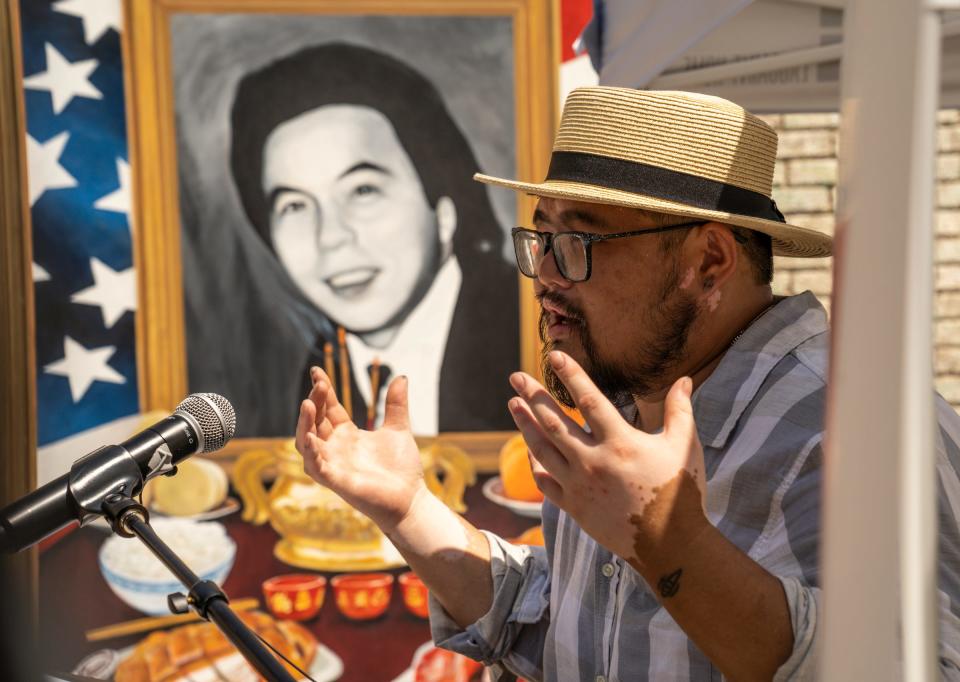
"Vincent Chin matters today because what happened to him 40 years ago is very similar to what's going on today," Zia said. "Anti-Asian hate and hate violence is happening all across America. And it's very important to remember that back then people came together to stand up and say, no more, that hate does not belong in America. No group of people should be targeted for who they are, how they look, their ancestry, who they love. Everybody should be respected for their full humanity. ... We're at a very urgent time ... weekly reports of terrible, violent attacks and hate attacks and mass killings. ... We have come together before and we are standing up together. We have to do that even more."
Contact Niraj Warikoo:nwarikoo@freepress.com or Twitter @nwarikoo
If you go
The four-day series of events to remember Vincent Chin are all free and open to the public. Organizers are asking people to register at www.vincentchin.org.
Thursday: 7 p.m. to 9:30 p.m.: Screening of "Bad Axe," a movie featuring a Michigan Asian American family, at the Detroit Film Theatre at the DIA, 5200 John R St. Includes Q&A with the director.
Thursday-Friday: 9 a.m. to 5 p.m.: Convening of Asian American documentary filmmakers led by Center for Asian American Media, by invitation only.
Friday: 7 p.m. to 9:30 p.m.: Screening of Oscar-nominated documentary “Who Killed Vincent Chin?” Detroit Film Theatre at the DIA, with a Q&A with members of the filmmaking team.
Saturday: 1 p.m. to 3:30 p.m.: Detroit Film Theatre, pre-recorded national dialogue.
Saturday:7 p.m. to 9:30 p.m.: Asian American musicians, dancers and poets to perform to promote unity, St. Andrew's Building at Wayne State University, 5105 3rd Ave. in Detroit.
Sunday: 11:30 to 1:30 p.m.: Detroit Film Theatre, two panel discussions on Chin and Asian Americans.
Sunday: 3 p.m. to 4:30 p.m.: interfaith ceremony at Forest Lawn Memorial Park cemetery, 11851 Van Dyke St. in Detroit.
This article originally appeared on Detroit Free Press: Asian Americans continue fighting 40 years after death of Vincent Chin

